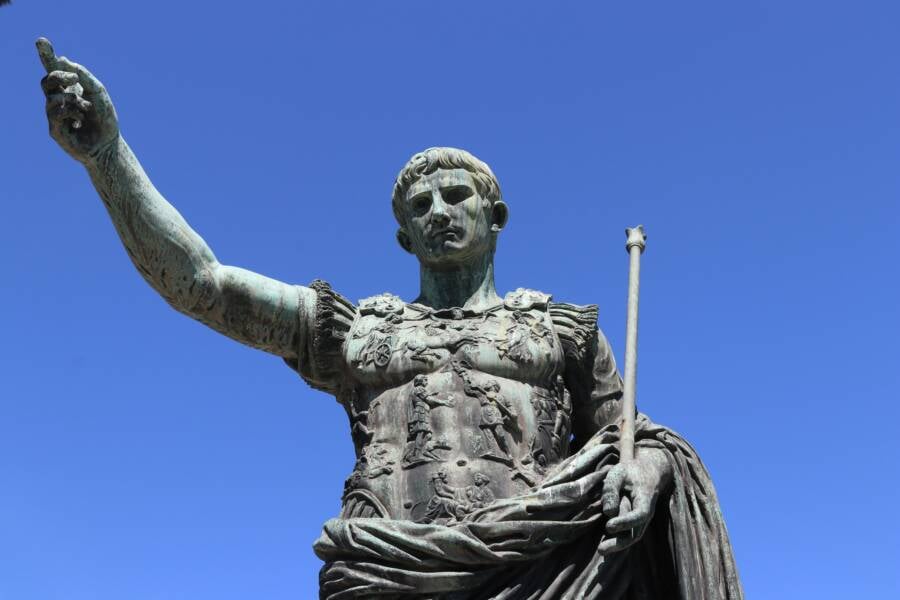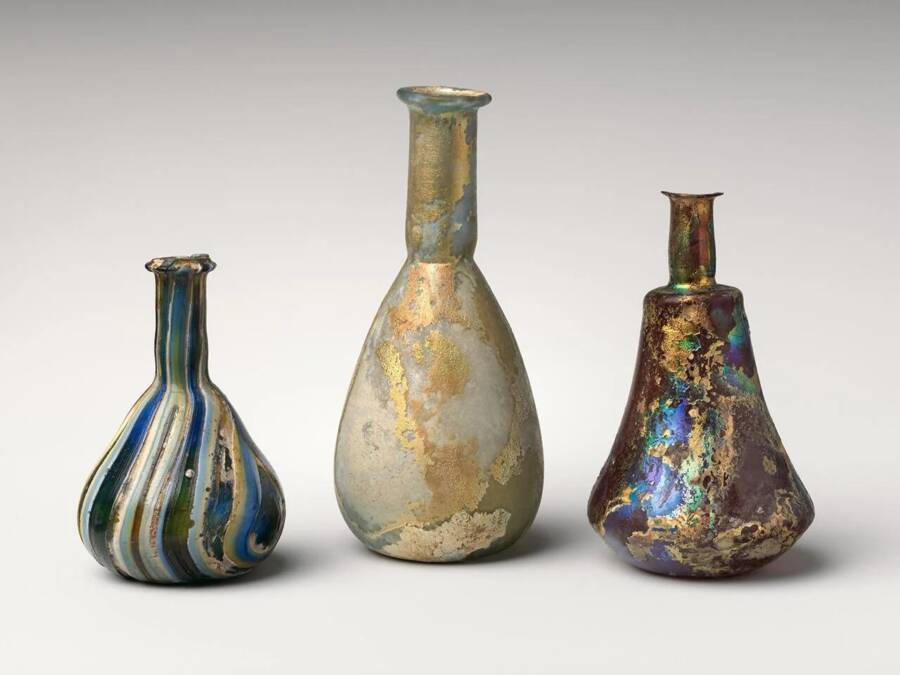Research shows that the Roman dictator smelled like a blend of rock roses, citrus, and amber.

Clemens van Lay/UnsplashA statue of Julius Caesar, the infamous Roman dictator.
Researchers from Sivas Cumhuriyet University in Türkiye, Milanese perfumers, and renowned perfume designer Bihter Türkan Ergül have reconstructed the perfume worn by famed Roman leader Julius Caesar.
The team formulated the scent using historical records and accounts from Caesar’s contemporaries, and the fragrance will soon be available for purchase. Now, history buffs around the world can smell like one of the most famous men in the ancient world.
Researchers Recreate Julius Caesar’s Signature Scent
Researchers recently embarked on the ambitious task of recreating the perfume of Roman emperor Julius Caesar. The project was supported by several historical accounts of the ruler’s signature scent. After substantial research, the team recreated “Telinum,” the ancient perfume containing a blend of scents like rock rose, citrus, amber, and oud, a fragrant oil made from tree resin.
In the ancient world, perfume was deeply engrained in the daily lives of both the elite and lower classes. Scents changed depending on the wearer’s social standing and ability to pay for more expensive and rare ingredients. For Caesar’s contemporaries, getting the “scoop” on his signature scent would have been of high interest.
After all, Julius Caesar was one of history’s most famous rulers. He had a successful military career as a Roman general, even winning a civil war against Pompey after famously crossing the Rubicon.
Public DomainAn 1854 painting by Gustave Boulanger of Julius Caesar arriving at the Rubicon River.
By 44 C.E., Caesar had enacted widespread reforms and declared himself “dictator for life.” His reign ended abruptly with his assassination that same year.
With such an image, Caesar’s signature perfume would have been the talk of the town, according to the Scent Culture and Tourism Association.
“Caesar was a very famous general and dictator, and he always attracted the attention of the public with his lifestyle and clothing,” the group noted. “The perfumes he used were also followed with great interest by the public. What Caesar smelled like, what was in his perfume, where he got his perfume or who made it for him had always been a matter of great curiosity.”
The Ancient Tradition Of Perfumery
The art of perfumery dates back thousands of years, with many of the earliest examples appearing in ancient Egypt. Earlier this year, researchers even recreated Cleopatra’s perfume using 2,000-year-old residue.

Metropolitan Museum of ArtFirst century C.E. Roman perfume bottles.
Like many other ancient cultures, the Romans held a deep appreciation for perfumery. The scents were not solely for cosmetics but also for ceremonies and class designations. For example, Roman custom required the burning of incense at funerals. Perfumes were also used in ointments and during the embalming process for the deceased.
For society’s elite, scents stood as reminders of their wealth. They had access to rare ingredients such as irises and rock roses, fragrances that set them apart from common citizens. Roman officials, generals, priests, and the wealthy often commissioned personal scents. As expected, Caesar’s perfume was highly unique and crafted to represent his power and influence in ancient Rome.
The Scent Culture and Tourism Association also announced that the recreated perfume will be available for sale in Italy, Türkiye, and France beginning in October for all of those interested in smelling like one of history’s most famous rulers.
After reading about the recreation of Julius Caesar’s signature scent, learn about ambergris, the rare whale vomit used to make perfumes. Then, read about the corpse flower, the plant that smells like rotting flesh.





